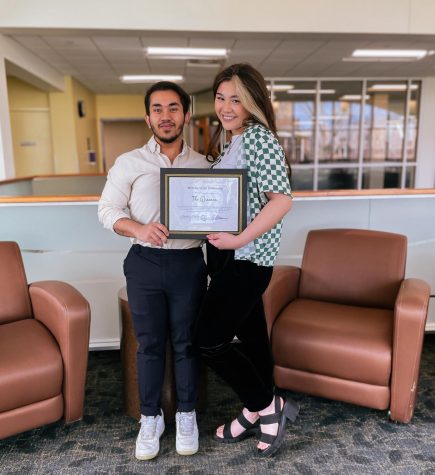Free and responsible speech: A letter to the editor

November 14, 2018
The U.S. Bill of Rights gives all Americans unprecedented freedoms. Here at WSU, we support the freedom of speech, press, and assembly of all of our students, and we hope to create an environment where the First Amendment thrives. But our shared commitment to free speech means that we will all encounter ideas with which we do not agree, and even ideas we find offensive, shocking, and troubling.
Each of us has a right to speak freely. These freedoms do not exist in a vacuum, however. As Eleanor Roosevelt said, “with freedom comes responsibility.” Living in a community requires us to think about when our rights are paramount and should supersede the community, and when the community is paramount and we choose not to exercise a right to the fullest. Experience teaches us to use speech responsibly and thoughtfully, mindful that everyone will not agree with us, mindful that our actions may be remembered, and willing to weather the disagreement that follows. Just as freedom is not free, free speech is not free of cost and consequence.
The U.S. courts have determined that the First Amendment does have some limitations. The First Amendment does not protect piracy, obscenity, libel, and slander. So, presenting stolen term papers as your own work or lying about your fellow students are not protected forms of free speech. Neither does the First Amendment protect what the courts call “inciting imminent lawless action”: words that try to provoke others into breaking the law. So, for example, if your words create a violent riot, your speech may not be protected. Fighting words – words that are “a direct personal insult or an invitation to exchange fisticuffs” (Texas v. Johnson 41 U.S. 397) – are not protected by the First Amendment either. This means that racist, sexist, and homophobic slurs could all be considered fighting words, and therefore not protected speech.
What’s the best way to respond to speech that you find offensive, shocking, and troubling? Generally, the best response is more and better speech. If you hear an idea with which you don’t agree, use your freedom of speech, press, and assembly to respond. Please be reflexive and mindful of the consequences of your own speech. If the speech you’ve encountered is hate speech, fighting words, incitement to violence and so on, then I’d ask that you report it to a campus official. A good place to report such things is our Office of Legal Affairs in Somsen 202 or online at https://www.winona.edu/affirmativeaction/complaint.asp.
We try to practice responsible and effective protest and free speech here at WSU. For example, each semester, WSU students hold a “Warrior Debate,” where they argue starkly opposing positions on trending social topics in a respectful manner, showing that we can discuss difficult topics together without yelling and name-calling. We have also established a Commission on Academic Freedom and Free Speech (CAFFS) to craft a statement expressing WSU’s commitment to these ideals. Three open forums will be held next week to discuss the Commission’s proposed draft value statement. I invite you to join us, as we will have much to speak about … and freely!
Meanwhile, please join us in the cacophony of ideas that is this university and is the reality of freedom of speech.
Sincerely yours,
Scott R. Olson
President
































































